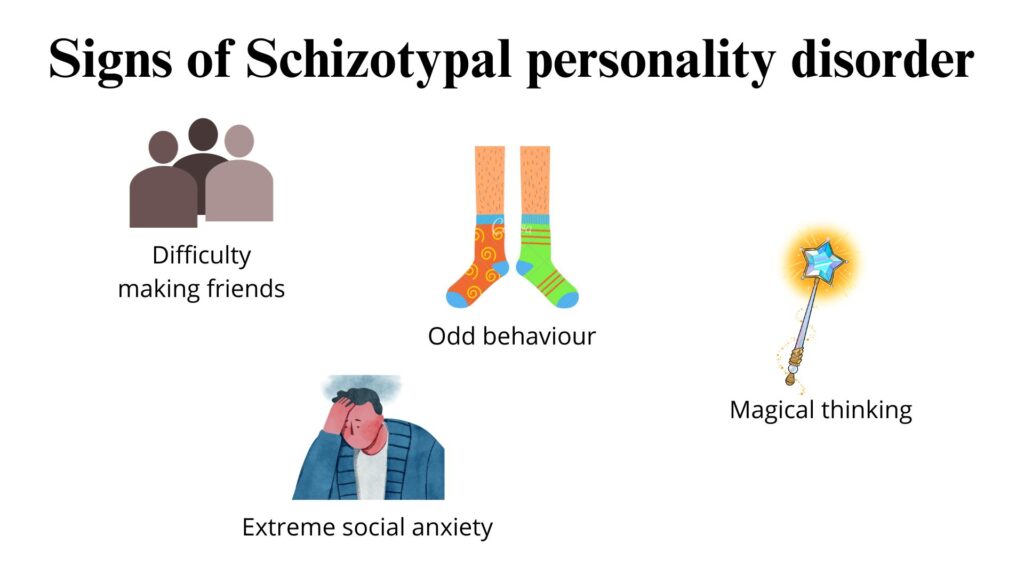Exploring the Complex Psychology Behind Jeffrey Dahmer: Revealing the Thoughts of a Serial Killer
In my quest to understand the depths of the human mind, I find myself captivated by the enigmatic figure of Jeffrey Dahmer. As a serial killer, he embodies the dark complexities that lurk within our psyche, challenging our understanding of what drives someone to commit such heinous acts.
Join me on this journey as we delve into the complex psychology behind Jeffrey Dahmer, peering into the abyss of his thoughts and attempting to unravel the twisted motivations that led to his reign of terror.
Together, we will explore the intricate web of mental illness, the chilling normalcy of a psychopath, and the profound impact of his crimes on society. Through this exploration, we hope to shed light on the darkest corners of the human mind, revealing the complex psychology that lies behind the facade of a serial killer.
Jeffrey Dahmer’s Trial
In 1992, a trial involving a notorious individual captivated the entire nation. Every detail of the proceedings was carefully analyzed, providing an unprecedented glimpse into the inner workings of the mind of a murderer.
During Dahmer’s trial, there was debate about whether he suffered from mental disorders. The prosecution argued that his disorders didn’t prevent him from understanding his actions, while the defense claimed he struggled with uncontrollable obsessions.
Experts explored the complexities of the defendant’s psychology, attempting to decipher the motivations behind such heinous acts. This trial offered a rare opportunity to delve into the depths of the human mind and its capacity for depravity. Experts suggested his necrophilia led to a loss of control during his crimes.
The courtroom became a platform for specialists to examine and shed light on the mental state of this individual. It was revealed that they had been diagnosed with a number of mental illnesses, further complicating the investigation.
Several diagnoses were given, including necrophilia, borderline personality disorder, schizotypal personality disorder, alcohol dependence, and a psychotic disorder
Court-appointed experts identified a severe mixed personality disorder with antisocial, obsessive-compulsive, sadistic, fetishistic, borderline, and necrophilic traits. They considered him legally sane, stating he sought companionship without being psychotic.
These diagnoses offered an insight into the darkness that had consumed their mind. With every aspect of the trial, the spotlight shifted from the atrocious crimes to the serial killer’s mind, a chilling reminder of the macabre fascination with the disturbing depths of the human psyche.

Mental Illnesses Diagnosed in Jeffrey Dahmer
The dark inner workings of a criminal mastermind can be illuminated through the examination of Jeffrey Dahmer’s psychological disorders. His trial shed light on the disturbed psyche of this notorious criminal, revealing a complex interplay between mental illnesses and violent behavior.
From the depths of his schizotypal personality disorder to the intricate thought disorder, Dahmer’s mental health provided a glimpse into the tumultuous landscape of his mind.
The manifestation of these disorders not only impacted his actions, but also enabled him to remain undetected for a prolonged period of time.
Examining the complexities of his schizotypal personality disorder and thought disorder provides an opportunity to unravel the mysteries of his mental health. Moreover, his capacity to maintain a facade of normalcy allowed him to move freely in society, thus perpetuating his reign of terror.
Psychologist Eric Hickey and Serial Killers
Dr. Eric Hickey has made a substantial impact on the field of criminal psychology with his work, particularly in the area of serial killers.
He has worked diligently to uncover the inner workings of the minds of these individuals, providing valuable insight into their motivations and thought processes.
Hickey has also investigated the connections between psychological conditions and criminal behavior, exploring the various mental illnesses that can lead to violent acts.
His research has enabled us to better understand the complex dynamics at play in these offenders, as well as the warning signs of potential future offenders. Additionally, his work has been instrumental in the creation of strategies for crime prevention and offender profiling.
In particular, Hickey dedicated much of his research to the case of Jeffrey Dahmer. His analysis of the schizotypal personality disorder that Dahmer exhibited has been invaluable in deepening our understanding of how mental illnesses can manifest in criminal behavior.
This knowledge has been immensely useful in helping to identify potential risk factors, as well as in developing more effective treatments for those who may be at risk of violent behavior.
Hickey’s contribution to the science of criminal psychology is thus invaluable and has been a major factor in making the world a little bit safer.
Schizotypal Personality Disorder

Navigating the universe of someone with Schizotypal Personality Disorder can be a complex and challenging experience. Individuals with this mental condition often experience extreme anxiety in social situations and struggle with forming close relationships.
Oftentimes, they display odd or peculiar behavior, such as wearing strange clothing or having peculiar beliefs. Additionally, those with schizotypal personality disorder may experience perceptual disturbances, such as hallucinations or magical thinking.
Research has suggested that there may be an increased risk of developing psychotic disorders, such as schizophrenia, for those with schizotypal personality disorder. Nevertheless, it’s important to understand that not everyone with this disorder will go on to develop a psychotic disorder. To manage their symptoms and maintain a sense of connection with others, it is paramount that those with schizotypal personality disorder receive treatment.
Treatment for this disorder typically combines therapy and medication. Cognitive-behavioral therapy can help to challenge and modify negative thought patterns as well as improve social skills. Additionally, medications such as antipsychotic drugs may be prescribed to help manage symptoms. It is essential for individuals with schizotypal personality disorder to receive proper support and treatment for their condition.
Related: Cognitive-behavioral therapy can help to challenge and modify negative thought patterns as well as improve social skills
Though schizotypal personality disorder can be a complex and misconstrued condition, it is important to approach it with compassion and understanding. By exploring the cosmos of someone with this disorder, we can gain a better understanding of the unique struggles they face and work towards destigmatizing mental health conditions.
Jeffrey Dahmer: The Chilling Normalcy of a Psychopath
Behind the seemingly average facade of Jeffrey Dahmer lurked a deeply sinister nature. The contrast between his normal appearance and his abhorrent actions engenders a sense of unease in those familiar with his story.
His ability to blend in with society and to lure unsuspecting victims with his unassuming demeanor made his depravity all the more shocking. By delving into the intricate aspects of Dahmer’s psychology, we are presented with a disturbing portrait of a man driven by his own twisted impulses.
It is precisely this abnormality that captivates us, forcing us to consider how someone with such an ordinary life could commit such heinous acts. His victims, who did not conform to the traditional profile of young white women typically associated with serial killers, serve to further highlight this unsettling normalcy of Dahmer’s psychopathy.
Monster: The Jeffrey Dahmer Story
Monster: The Jeffrey Dahmer Story is an enthralling and chilling Netflix series that provides a deep look into the intricate psychology behind one of America’s most notorious criminals.
This series takes viewers on a disturbing journey into the mind of Dahmer, exposing the depths of his distorted ideas and inspirations. In addition to spotlighting the horrific crimes of this serial killer, this groundbreaking show offers invaluable insights into the realm of criminal psychology and the strange attraction of serial killers.

The series chronicles the events around Dahmer’s 1995 trial, providing an exhaustive account of the legal process and the shocking disclosures that surfaced during the proceedings. With expert analysis and witness testimonies, Monster: The Jeffrey Dahmer Story provides an all-encompassing analysis of the trial, allowing viewers to gain a profound understanding of the psychological intricacies at play.
One of the most alarming aspects examined in the series is the mental illnesses diagnosed in Jeffrey Dahmer. Through exploring his disturbed psyche, Monster: The Jeffrey Dahmer Story reveals the presence of a variety of psychological disorders that likely contributed to his atrocious actions. This exploration serves as an eye-opening reminder of the immense impact mental health issues can have on a person’s behavior and the potential dangers that can arise when neglected.
In addition, the series offers a special perspective through world-renowned criminal psychologist Dr. Eric Hickey. Well-known for his work with notorious serial killers, Dr. Hickey provides key insights into the mind of Dahmer and the psychological aspects that could have impacted his actions.
Jeffrey Dahmer’s Death in Prison
The death of an infamous criminal in prison marked the conclusion of a dark period in history. Incarcerated for his reprehensible deeds, Dahmer’s life met a violent ending within the prison walls. This brought attention to the perils posed to notorious offenders in this environment, where discord and brutality can reach catastrophic levels. While serving multiple life sentences, he was slain by another inmate, becoming a victim himself in a place designed to safeguard society from his atrocious acts.
The news of his passing stirred up the media, reigniting public interest in his deranged psyche and the nature of his offenses. This prompted debates about the efficacy of the justice system in protecting both convicts and the public. It also triggered speculation about potential retribution and animus-driven justice in the prison context, where the boundary between punishment and personal animosity is blurred.
The sorrowful end of Dahmer’s life behind bars serves as a poignant reminder of the lasting effects his misdeeds had on the lives of his victims, their families, and society overall. Although his death may have given some closure, it also shed light on the enduring legacy of his actions. The repercussions of his actions are still being felt, not only in the lives directly impacted, but also in the broader conversations surrounding criminal justice reform, the complex psychology of serial killers, and mental health.
The Unconscious Selection of Jeffrey Dahmer as a Topic
Morbid curiosity and a fascination with the dark and twisted aspects of humanity have resulted in Jeffrey Dahmer’s inclusion in unconscious conversations. His heinous crimes and the disturbing details surrounding the case have captivated public attention for years.
Dahmer’s seemingly mundane facade juxtaposed with the gruesome nature of his actions create an aura of terror and curiosity that entices people to explore further. This unconscious selection of Dahmer as a topic acts as a reminder of our obsession with the macabre and the unknown depths of the human psyche.
Moreover, this unconscious selection of the notorious serial killer may also be attributed to our hunger for understanding the complex psychology behind his actions. His story provides an opportunity to explore the various factors that could have contributed to the making of a monster.
Examining the intricate mix of mental illnesses, childhood experiences, and social influences aids in our effort to comprehend the motivations behind such monstrous deeds. Thus, the unconscious selection of Jeffrey Dahmer mirrors our innate curiosity and our desire to fathom the darkest corners of the human mind.
Conclusion of Jeffrey’s psychology
In conclusion, delving into the complex psychology behind Jeffrey Dahmer has been both fascinating and chilling. Unveiling the thoughts of this heinous serial killer has shed light on the depths of human darkness and the intricate workings of the mind.
Through analyzing Dahmer’s trial, mental illnesses, and the insights of psychologists like Eric Hickey, we have gained a deeper understanding of the inner workings of a psychopath. The chilling normalcy and the unconscious selection of Dahmer as a topic only serve to remind us of the potential for evil that can exist within seemingly ordinary individuals.
As we reflect on Dahmer’s death in prison, we are left with a sense of unease and a renewed commitment to understanding and preventing such acts of horror in the future.








Muy buen tu post espero sigas así y creciendo mas en tu conocimiento
Es la primera vez que veo un post hablando sobre asesinos seriales y cuales eran sus razones para actuar de maneras tan atroces, aún termino de leer el post por completo pero ya con solo leer los primeros párrafos atrae demasiado la atención, aun mas que nos estan intentando dar una explicación razonable de todos los hechos de Jeffrey, del porque una persona podía ser capaz de hacer cosas tan fuera de la moral como atentar con la vida de otras personas
Hello mates, how is all, and what you desire to say about
this piece of writing, in my view its truly amazing in support of me.
Here is my blog post :: gold ira companies